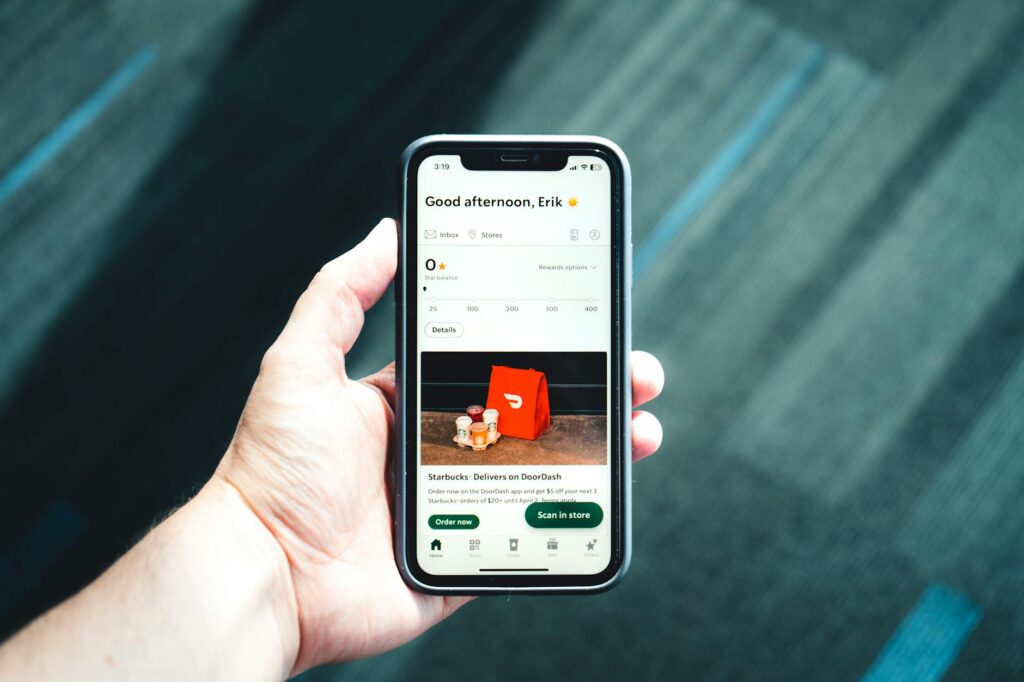
Revolutionizing caregiving: How apps are changing the care industry
Nov 29, 2024
Enter the world of caregiving apps – a revolutionary force that's reshaping the care industry as we know it. 📱💙 These digital tools are not just changing how care is delivered; they're transforming the entire caregiving experience for everyone involved. From simplifying daily tasks to improving communication between caregivers and healthcare providers, these apps are addressing long-standing problems in the care sector.
Have you ever felt overwhelmed by the responsibility of caring for a loved one? 🤔 You're not alone. Millions of caregivers worldwide face daily challenges in managing their caregiving duties. But what if there was a way to make this demanding task easier, more efficient, and less stressful?
In this blog post, we'll explore how caregiving apps are revolutionizing the industry, diving into their key features, benefits for both care recipients and caregivers, and their impact on healthcare institutions. We'll also discuss the challenges that come with this digital transformation and peek into the exciting future trends that await us in this rapidly evolving field. Get ready to discover how technology is paving the way for a new era of compassionate, efficient, and connected caregiving.
The rise of caregiving apps

Addressing the growing demand for care services
As our population ages and healthcare needs become more complex, the demand for care services has skyrocketed. Caregiving apps have emerged as a crucial solution to meet this increasing need. These innovative platforms leverage technology to connect care recipients with qualified caregivers, streamlining the process of finding and managing care.
Bridging the gap between caregivers and care recipients
One of the most significant contributions of caregiving apps is their ability to bridge the gap between those in need of care and those providing it. These apps serve as digital marketplaces, allowing care recipients to:
- Browse profiles of qualified caregivers
- Match with professionals based on specific needs and preferences
- Schedule care sessions with ease
- Communicate directly with caregivers
For caregivers, these apps offer:
- Opportunities to find work and expand their client base
- Tools to manage their schedules efficiently
- Secure platforms for communication and payment
Enhancing efficiency in care management
Caregiving apps are revolutionizing care management by introducing unprecedented levels of efficiency. They offer features that streamline various aspects of caregiving:
| Feature | Benefit |
|---|---|
| Digital care plans | Ensures consistent, personalized care |
| Medication reminders | Improves adherence to treatment regimens |
| Real-time updates | Keeps family members informed about care progress |
| Secure messaging | Facilitates seamless communication between all parties |
By centralizing information and automating routine tasks, these apps allow caregivers to focus more on providing quality care rather than administrative duties. This shift not only improves the caregiving experience but also contributes to better outcomes for care recipients.
Key features of modern caregiving apps

Modern caregiving apps are transforming the way care is delivered and managed. These innovative tools offer a wide range of features designed to enhance communication, improve coordination, and streamline care processes. Let's explore the key features that make these apps indispensable in today's caregiving landscape.
A. Real-time communication and updates
Caregiving apps facilitate instant communication between caregivers, care recipients, and family members. This real-time connectivity ensures that everyone involved in the care process stays informed and updated.
| Feature | Benefit |
|---|---|
| Instant messaging | Quick exchange of information |
| Video calls | Face-to-face communication for remote caregivers |
| Status updates | Regular updates on care recipient's condition |
| Emergency alerts | Immediate notification of urgent situations |
B. Medication management and reminders
One of the most critical aspects of caregiving is ensuring proper medication administration. Caregiving apps offer robust medication management features to help caregivers and care recipients stay on track.
- Medication schedules and dosage information
- Automated reminders for medication times
- Tracking of medication adherence
- Alerts for prescription refills
C. Care plan creation and tracking
Caregiving apps allow for the creation and management of comprehensive care plans. These digital tools help caregivers stay organized and ensure that all aspects of care are addressed.
D. Secure data sharing among care team members
To provide coordinated care, it's essential for all team members to have access to relevant information. Caregiving apps offer secure platforms for sharing and accessing important data.
- HIPAA-compliant data storage and sharing
- Role-based access controls
- Audit trails for data access and modifications
These features work together to create a more efficient, effective, and connected caregiving experience. As we move forward, we'll explore how these features translate into tangible benefits for care recipients.
Benefits for care recipients

Caregiving apps have revolutionized the way care is delivered, offering numerous advantages to those receiving care. Let's explore the key benefits that these innovative applications provide to care recipients.
A. Improved quality of care
Caregiving apps have significantly enhanced the quality of care by:
- Providing real-time communication between caregivers and care recipients
- Enabling accurate tracking of medication schedules and dosages
- Facilitating personalized care plans based on individual needs
B. Enhanced independence and autonomy
These apps empower care recipients to maintain their independence by:
- Offering reminders for daily tasks and appointments
- Providing easy access to educational resources about their conditions
- Allowing them to manage their own care preferences and schedules
C. Better coordination of services
Caregiving apps streamline the coordination of various care services:
| Service Type | App Features |
|---|---|
| Medical | Appointment scheduling, test result tracking |
| Personal Care | Task assignment, progress monitoring |
| Therapy | Session booking, exercise reminders |
D. Increased safety through monitoring features
Safety is a top priority, and caregiving apps address this through:
- GPS tracking for individuals with cognitive impairments
- Fall detection and emergency alert systems
- Remote monitoring of vital signs and health metrics
These benefits collectively contribute to a more comprehensive and effective care experience for recipients. By leveraging technology, caregiving apps not only improve the quality of care but also empower individuals to take an active role in managing their health and well-being. As we explore further, we'll see how these apps also provide significant advantages for caregivers themselves.
Advantages for caregivers

Now that we've explored the benefits for care recipients, let's examine how caregiving apps are transforming the lives of caregivers themselves.
Streamlined task management
Caregiving apps offer powerful tools to organize and prioritize daily tasks, medication schedules, and appointments. This digital assistance helps caregivers:
- Reduce mental load
- Minimize errors
- Increase efficiency
Reduced stress and burnout
By automating routine tasks and providing timely reminders, these apps significantly alleviate caregiver stress. Features like:
- Emergency alerts
- Respite care scheduling
- Guided relaxation exercises
contribute to overall well-being and reduce the risk of burnout.
Access to support networks and resources
Caregiving apps connect users to:
| Resource Type | Benefits |
|---|---|
| Support groups | Emotional support, shared experiences |
| Educational materials | Skill development, best practices |
| Professional advice | Expert guidance, problem-solving |
This network of support helps caregivers feel less isolated and more empowered in their roles.
Improved work-life balance
With better organization and support, caregivers can:
- Allocate time more effectively
- Pursue personal interests
- Maintain social connections
This balance is crucial for long-term sustainability in caregiving roles.
Professional development opportunities
Many apps offer:
- Certification courses
- Skill-building modules
- Career advancement resources
These opportunities enable caregivers to grow professionally while providing care, opening doors to new career paths in the healthcare industry.
As we've seen, caregiving apps offer numerous advantages for caregivers. Next, we'll explore how these technological advancements impact healthcare providers and institutions.
Impact on healthcare providers and institutions
Healthcare providers and institutions are experiencing a significant transformation due to the rise of caregiving apps. These digital solutions are reshaping the landscape of care delivery, offering numerous benefits that extend beyond individual caregivers and recipients.
Enhanced patient outcomes
Caregiving apps contribute to improved patient outcomes by:
- Facilitating better communication between healthcare providers and patients
- Enabling real-time monitoring of patient health data
- Promoting adherence to treatment plans and medication schedules
Cost-effective care delivery
The integration of caregiving apps leads to more cost-effective care delivery through:
- Reduced hospital readmissions
- Decreased need for in-person visits
- Optimized resource allocation
Improved resource allocation
Caregiving apps help healthcare providers optimize their resources by:
- Streamlining administrative tasks
- Automating appointment scheduling and reminders
- Enabling remote consultations and follow-ups
Data-driven decision making
One of the most significant impacts of caregiving apps is the wealth of data they generate, enabling:
| Benefit | Description |
|---|---|
| Predictive analytics | Identifying potential health issues before they escalate |
| Personalized care plans | Tailoring treatments based on individual patient data |
| Population health management | Analyzing trends to improve overall community health |
As healthcare providers and institutions continue to adopt these technologies, they are finding new ways to leverage the power of caregiving apps to enhance their services and improve patient care. This digital revolution is not only transforming the way care is delivered but also paving the way for more efficient and effective healthcare systems.
Challenges and considerations

As caregiving apps continue to revolutionize the care industry, it's crucial to address the challenges and considerations that come with this technological advancement. Let's explore the key issues that both developers and users must navigate.
A. Privacy and data security concerns
The sensitive nature of healthcare information demands robust security measures. Caregiving apps must prioritize:
- End-to-end encryption
- Secure data storage
- Regular security audits
| Privacy Concern | Potential Solution |
|---|---|
| Data breaches | Multi-factor authentication |
| Unauthorized access | Role-based access control |
| Data misuse | Strict data usage policies |
B. Technology adoption barriers
While caregiving apps offer numerous benefits, their adoption can be challenging, especially for:
- Elderly care recipients
- Technologically inexperienced caregivers
- Rural areas with limited internet access
C. Integration with existing healthcare systems
Seamless integration with existing healthcare infrastructure is crucial for the success of caregiving apps. This involves:
- Compatibility with electronic health records (EHRs)
- Interoperability with other healthcare software
- Adherence to industry standards like HL7 and FHIR
D. Regulatory compliance
Caregiving apps must navigate a complex regulatory landscape, including:
- HIPAA compliance in the United States
- GDPR in the European Union
- Local healthcare regulations in different countries
Addressing these challenges is essential for the continued growth and success of caregiving apps. As we move forward, it's important to consider how these apps will evolve to meet future needs and expectations.
Future trends in caregiving apps

As caregiving apps continue to evolve, several exciting trends are shaping the future of this industry. These innovations promise to enhance the quality of care and improve the overall experience for both caregivers and care recipients.
AI and machine learning integration
Artificial intelligence and machine learning are set to revolutionize caregiving apps. These technologies will enable:
- Predictive analytics for early health issue detection
- Personalized care plans based on individual needs
- Automated medication reminders and dosage adjustments
Wearable technology integration
The integration of wearable devices with caregiving apps will provide:
- Real-time health monitoring
- Fall detection and emergency alerts
- Activity tracking for better health management
| Wearable Device | Key Features |
|---|---|
| Smartwatches | Heart rate monitoring, GPS tracking |
| Fitness trackers | Step counting, sleep analysis |
| Medical sensors | Blood pressure, glucose level monitoring |
Telehealth expansion
Telehealth features in caregiving apps will continue to grow, offering:
- Virtual consultations with healthcare professionals
- Remote patient monitoring
- Secure sharing of medical records and test results
Personalized care recommendations
Advanced algorithms will enable caregiving apps to provide:
- Tailored nutrition and exercise plans
- Customized mental health support
- Adaptive care schedules based on changing needs
These future trends in caregiving apps will not only improve the quality of care but also empower both caregivers and care recipients with more control and information. As we look ahead, it's clear that technology will play an increasingly vital role in transforming the caregiving landscape.

Caregiving apps have emerged as powerful tools, transforming the landscape of the care industry. These innovative solutions offer a wide array of features that benefit care recipients, caregivers, and healthcare providers alike. From improved communication and streamlined scheduling to enhanced monitoring capabilities and personalized care plans, these apps are revolutionizing the way care is delivered and received.
As we look to the future, the potential for caregiving apps to further evolve and address challenges in the industry is immense. By embracing these technological advancements, we can create a more efficient, connected, and compassionate caregiving ecosystem. Whether you're a caregiver, care recipient, or healthcare professional, exploring and adopting these apps can lead to better outcomes and a more rewarding caregiving experience for all involved.
